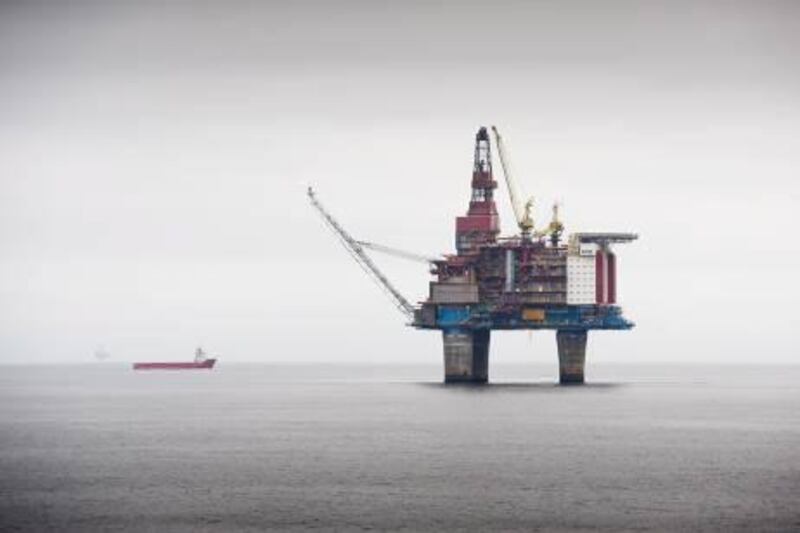OMV has acquired stakes in North Sea oilfields from Norway's Statoil in a US$2.65 billion deal, as the Austrian company pursues its strategy to expand its production capacity at the expense of its downstream portfolio.
Under the deal, OMV's largest to date, the company will receive stakes in two fields in Norwegian waters, the Gullfaks and the Gudrun fields. It will also increase its ownership in the Rosebank and Schiehallion fieldsnear the United Kingdom's Shetland Islands.
OMV, central Europe's largest energy company, is part owed by Abu Dhabi's International Petroleum Investment Company (Ipic). OMV said it had funded the acquisitions from the proceeds of divestments in its downstream business, after it sold hundreds of petrol stations this year alone.
The transaction "confirms OMV's clear focus towards increasing the significance of its E&P [exploration and production] activities", said Gerhard Roiss, OMV's chief executive. "The purchase price represents a reinvestment of the proceeds we have generated from disposals and working capital reductions from our downstream divisions over the last 18 months."
Energy companies have been keen to reduce their exposure to refining and marketing in Europe, amid declining profits from narrowing margins and dwindling fuel consumption. OMV has cautioned that refining margins are set to remain weak this year. It expects to sell its 45 per cent stake in Germany's Bayernoil Raffinerie next year.
With the new fields, the company's production capacity of approximately 300,000 barrels per day (bpd) will increase by 40,000 bpd next year, said OMV, which wants an increase of 58,000 bpd by 2016.
The company is already active in Norway, buying a 20 per cent stake in the Edvard Grieg field last year.
A focus on production in politically stable countries with a developed infrastructure also balances OMV's international portfolio. The company's earnings this year have suffered from disruptions to production in Libya and Yemen. In the second quarter, underlying profit slumped by almost a third as output fell.
Striking workers and roving militias have choked production and cut pipeline links in Libya, reversing a remarkable recovery of oil output after the ousting of Muammar Qaddafi as Libya's leader.
The Austrian company also suffered a reversal when the Nabucco pipeline project was abandoned earlier last month. OMV was the leading company behind the scheme to pipe gas from the Shan Deniz field in Azerbaijan to Europe. Its rejection in favour of a rival scheme also means the company has to find an alternative means of transport for the gas from a Romanian field OMV is developing in partnership with ExxonMobil.
OMV's portfolio is completed by a stake in the Bina Bawi-3 field in the Kurdish region of Iraq. A long standing dispute between the Kurdish Regional Government and the central government in Iraq have ensured that payments for oil and gas producers in the region has been patchy and incomplete. OMV recently struck oil in the field, and future production could be paid for by exports via a pipeline directly to Turkey.
Among OMV's more secure assets are two fields that the company is seeking to develop in Abu Dhabi, after signing agreements with the Abu Dhabi National Oil Company this year and last.





